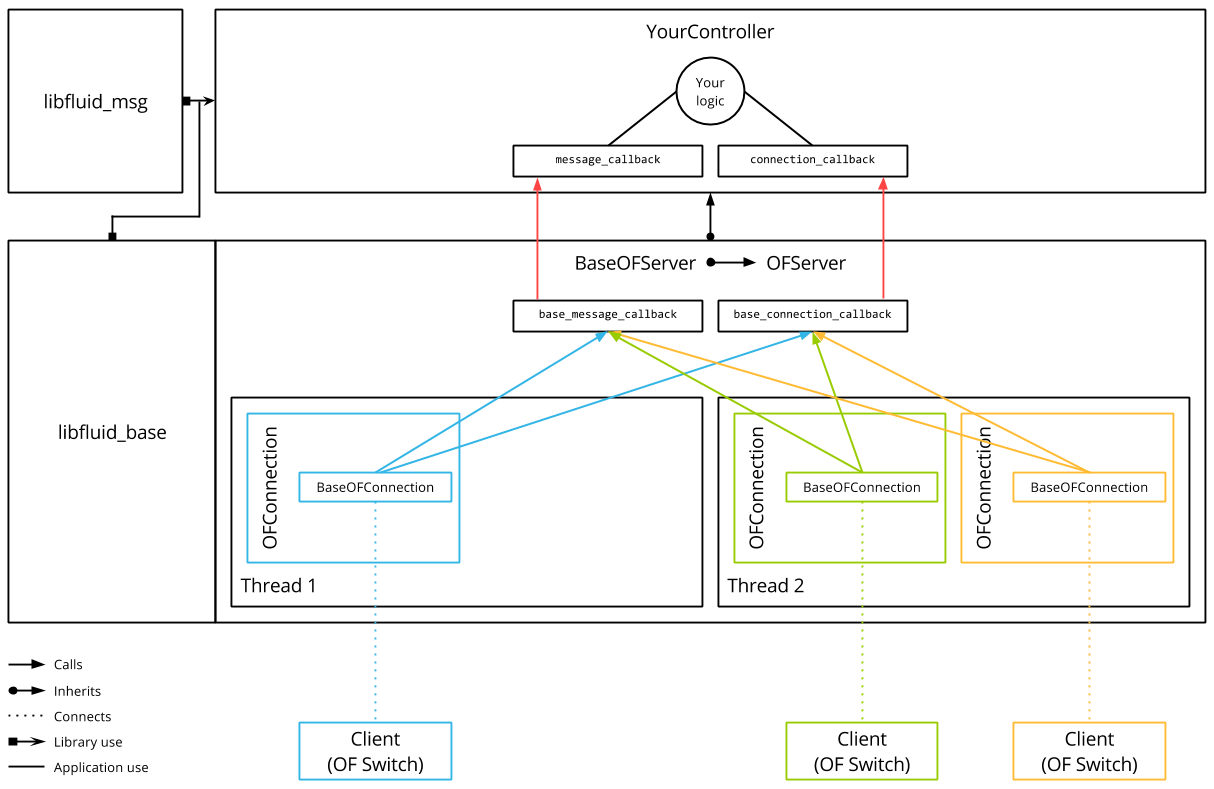libfluid_base (namespace fluid_base) defines a client-server architecture, in which a controller is a server and a switch is a client. It provides a base class upon which you can build your controller (by inheritance): fluid_base::OFServer.
libfluid_base has been tested on Ubuntu 12.04 and Fedora 19. It should run on other flavors of Linux. MacOS, Windows and BSD variations are currently not supported, but they should run with some simple changes (we plan to support them oficially in the future).
libfluid_base requires libevent 2.0 and (optionally) OpenSSL 1.0.
Install the dependencies:
Build:
If you want to compile without TLS support, pass the
--disable-tlsflag toconfigure. This will remove the dependency on OpenSSL.
Configure your system to find libraries in /usr/local/lib:
You can skip this last step by running
./configure --prefix=/usrin the build.
Install the dependencies:
Build:
If you want to compile without TLS support, pass the
--disable-tlsflag toconfigure. This will remove the dependency on OpenSSL.
Configure your system to find libraries in /usr/local/lib:
To use libfluid_base, you will need to include:
Link with your code with -lfluid_base.
For more examples on how to use the library, see the examples included in the libfluid bundle.
fluid_base::OFServer takes a port number, the number of workers to use, optional TLS support and few configuration parameters (fluid_base::OFServerSettings) that define how it should deal with some basic OpenFlow features. It also expects you to implement two callback method for dealing with connection events and messages.
The number of workers will define how many of them will be created when the server starts. Every worker will run in its own thread (which are automatically managed for you), and each will handle a certain number of connections, distributed in a round-robin fashion. Typically, these connections will be presented to you as fluid_base::OFConnection objects in the callbacks.
Finally, these are the callbacks you should implement:
These methods can be called from any of the threads that handle connections, so they must be thread-safe and return as quickly as possible (so the other connections don't starve waiting for a callback to complete). You can quickly build up a representation of the events and put them in an asynchronous queue for use by other parts of your controller or application, for instance. The examples provided with libfluid don't do this for the sake of simplicity.
The image below illustrates how your implementation can use libfluid_base.

This image is a rough representation of the architecture and workflow; if you see something slightly different or better defined in code, the code is right :)
For more advanced use cases, take a look at fluid_base::BaseOFServer and fluid_base::BaseOFConnection. They provide the basic functionalities upon which fluid_base::OFServer and fluid_base::OFConnection are built. However, you shouldn't need to deal with them most of the time.